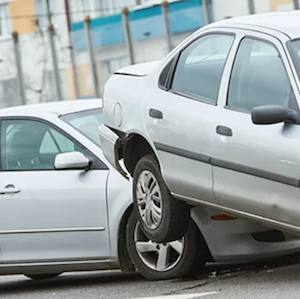- Free Consultation: (415) 727-1832
TMJ after a Car Accident

Are you experiencing Temporomandibular Joint Disorder (TMJ) after a car accident? A car accident can be a traumatizing experience for anyone involved, especially if there is physical harm. TMJ can be caused by a sudden impact to the head or neck, which can damage the joints, muscles, and ligaments in the jaw.
What is TMJ?
The temporomandibular joint (TMJ) is the joint that connects the jawbone to the skull. It is responsible for the movement of the jaw, allowing us to speak, chew, and swallow. TMJ disorder occurs when there is damage to the joint or surrounding muscles and ligaments, resulting in pain and discomfort.
Symptoms of TMJ
TMJ can cause a range of symptoms, including:
- Pain or tenderness in the jaw, face, neck, or shoulders
- Clicking or popping sounds when opening or closing the mouth
- Difficulty opening the mouth
- Lockjaw
- Headaches or migraines
- Earaches or ringing in the ears
- Dizziness
- Changes in bite or teeth alignment
If you experience any of these symptoms after a car accident, it is essential to seek medical attention.
What to do if you have TMJ
If you have TMJ after a car accident, there are several steps you can take to manage the symptoms and prevent further damage.
- Seek Medical Attention. The first step is to seek medical attention from a qualified healthcare provider. They can evaluate your symptoms and recommend treatment options, which may include medication, physical therapy, or dental treatment.
- Follow Treatment Plan. It is important to follow the treatment plan prescribed by your healthcare provider. This may include taking medication, attending physical therapy sessions, or wearing a dental appliance such as a mouthguard. In some cases, surgery may be required to correct the damage to the joint.
- Document Medical Expenses. It is essential to keep detailed records of all medical expenses related to your TMJ injury, including doctor visits, medication costs, and physical therapy bills. These records can be used to support your claim if you decide to pursue legal action.
- Contact a Knowledgeable Attorney. If your TMJ injury was caused by the negligence of another driver in a car accident, you may be entitled to compensation for your medical expenses, lost wages, and pain and suffering. A knowledgeable personal injury attorney can help you navigate the legal process and ensure that your rights are protected.
In California, personal injury claims must be filed within two years of the date of the accident (California Code of Civil Procedure § 335.1). It is important to act quickly to protect your rights and ensure that you receive the compensation you deserve.
Preventing TMJ
While it is not always possible to prevent TMJ from occurring, there are several steps you can take to reduce your risk:
- Practice good posture: Poor posture can strain the muscles and ligaments in the neck and jaw, increasing the risk of TMJ.
- Avoid chewing gum: Chewing gum can put excessive strain on the jaw muscles and joints, increasing the risk of TMJ.
- Avoid grinding or clenching teeth: Teeth grinding or clenching can put excessive pressure on the jaw muscles and joints, increasing the risk of TMJ.
- Use relaxation techniques: Stress and anxiety can cause tension in the jaw muscles, increasing the risk of TMJ. Relaxation techniques such as deep breathing, yoga, or meditation can help reduce stress and tension.
Conclusion
TMJ is a common injury that can result from a car accident. It can cause a range of symptoms, including pain, headaches, and difficulty opening the mouth. If you experience any of these symptoms you should seek medical attention immediately.










